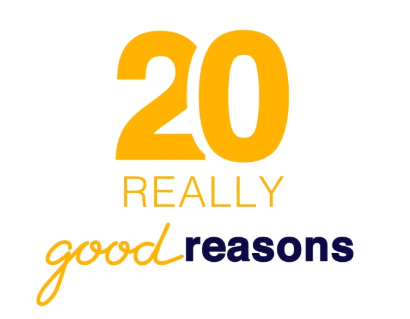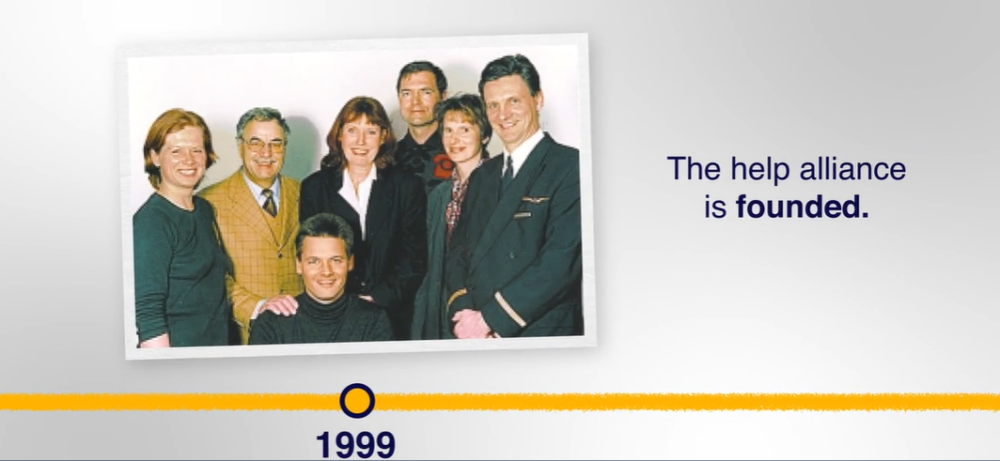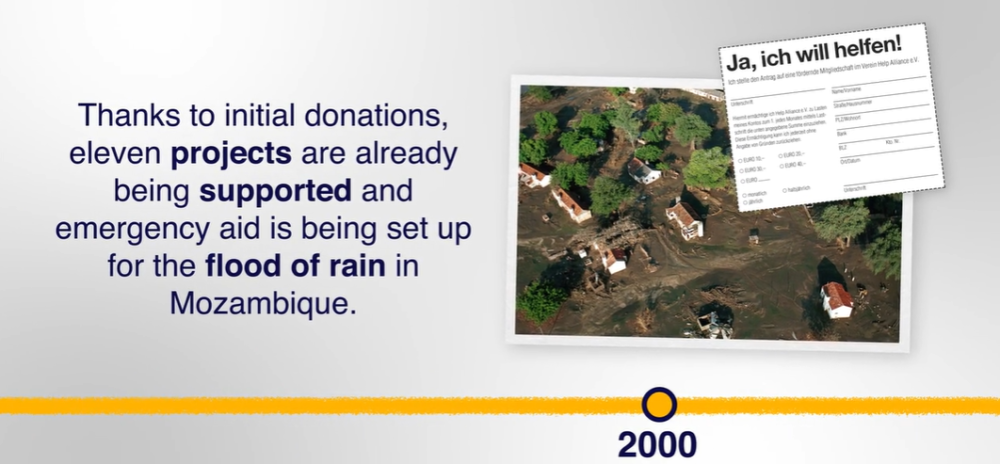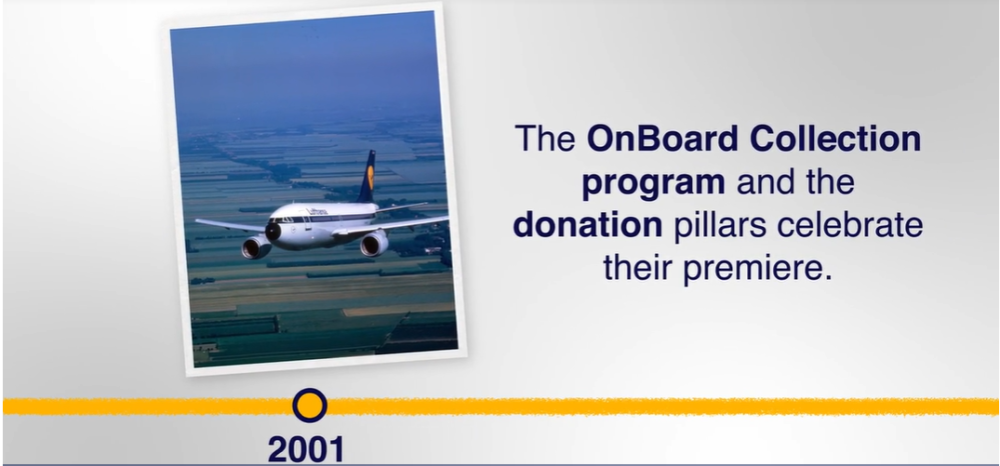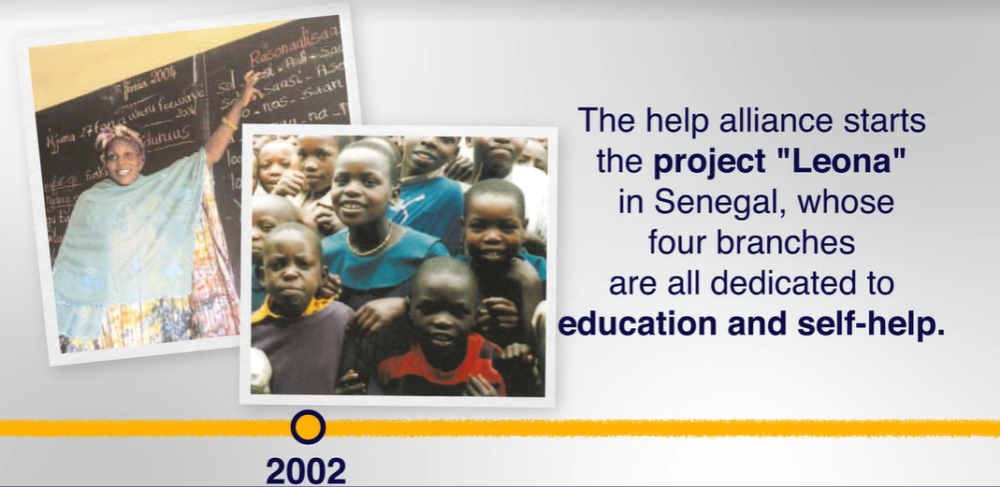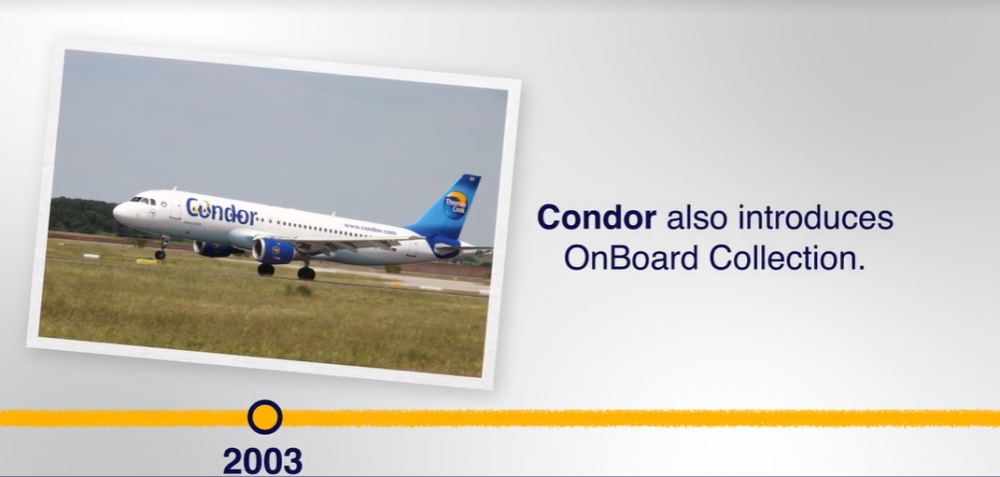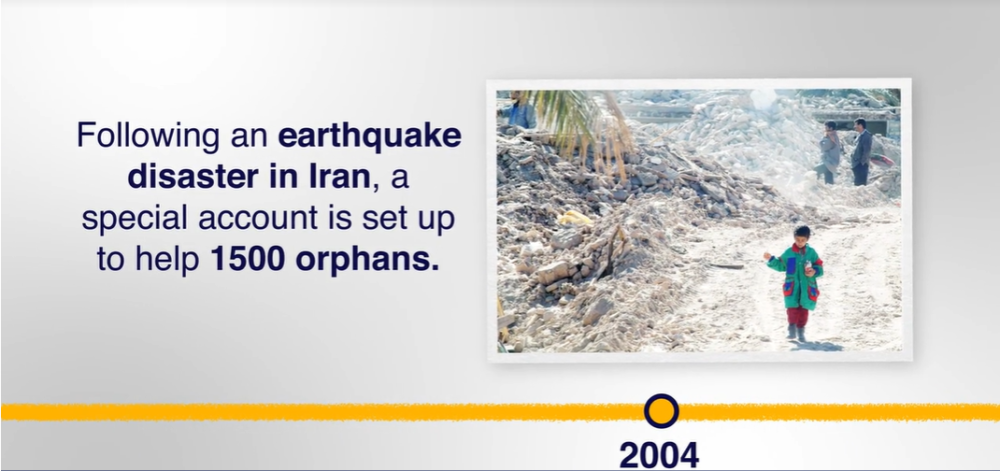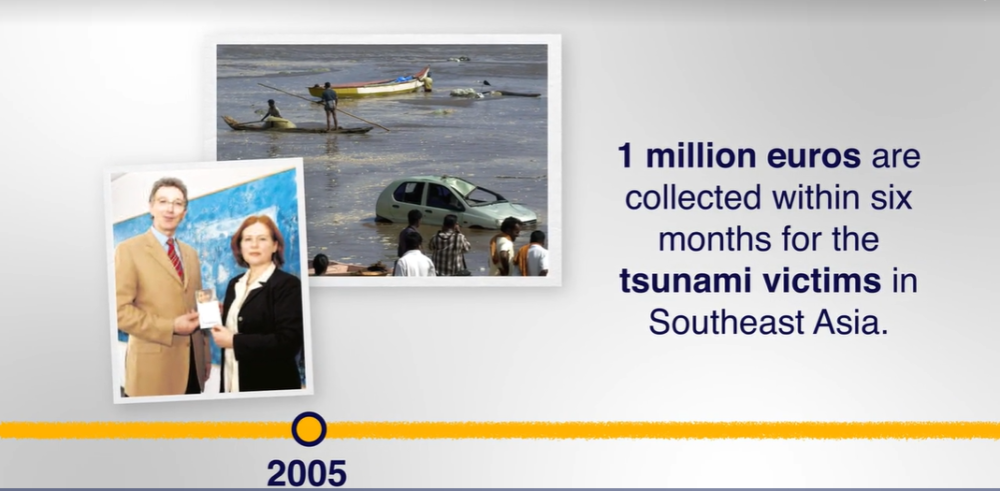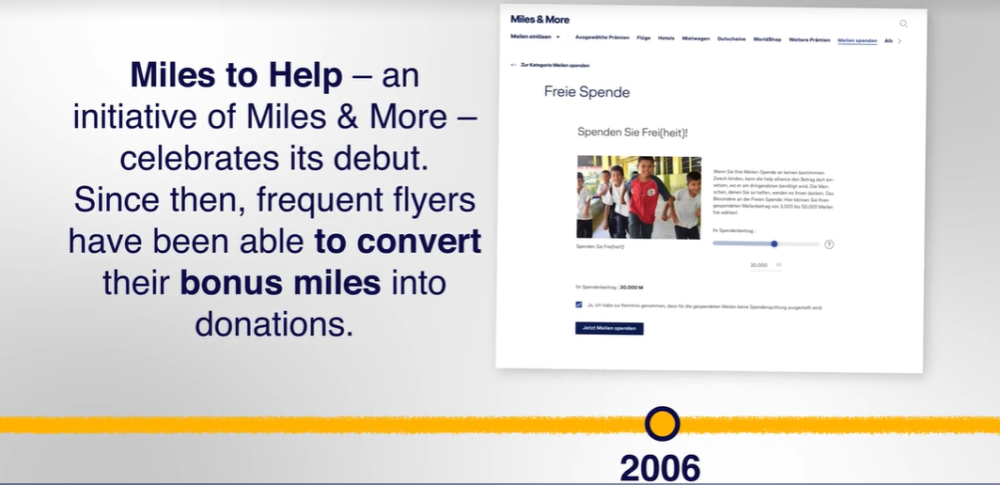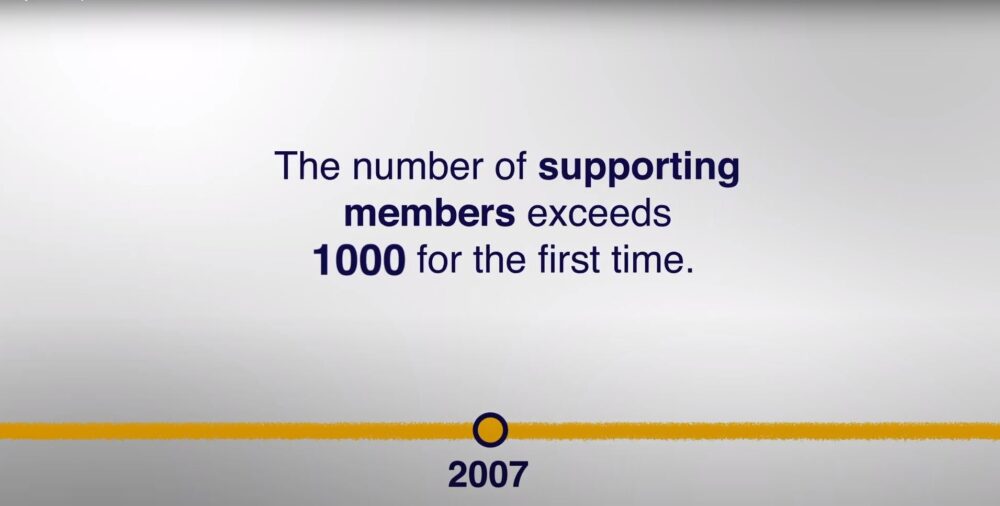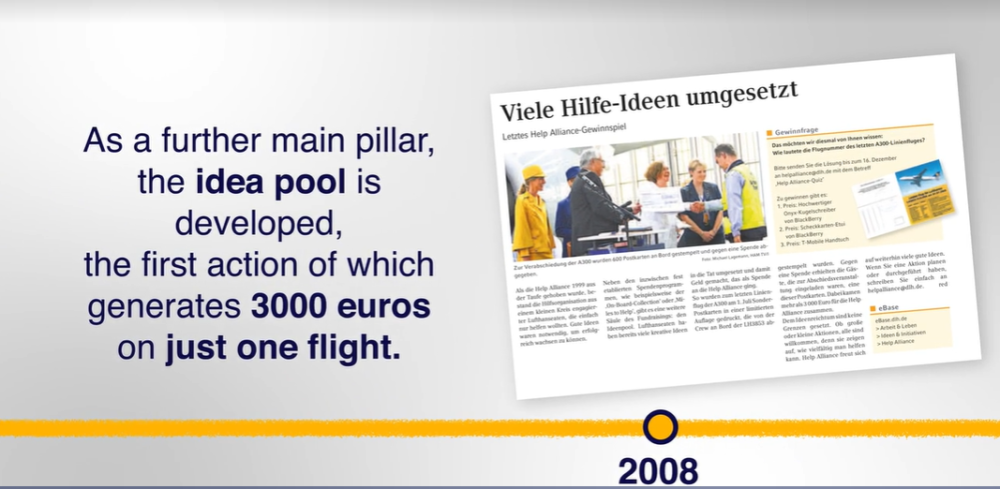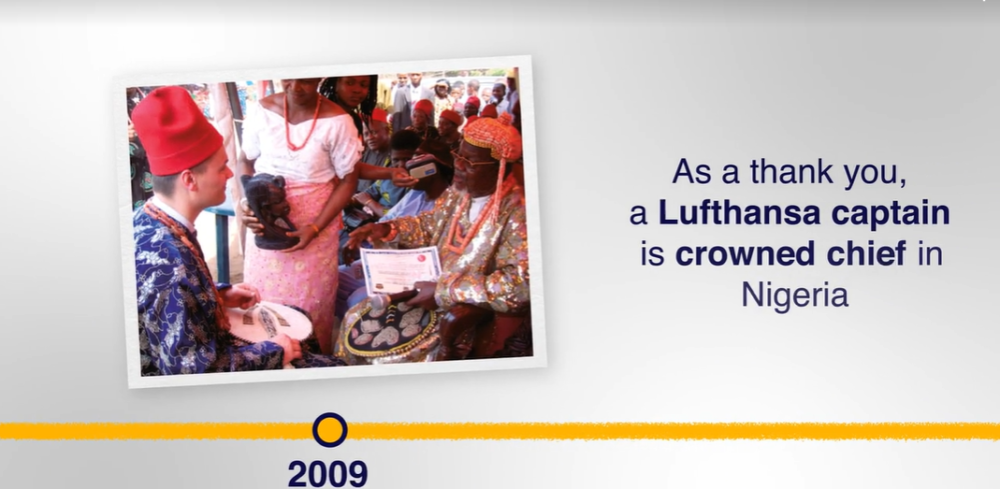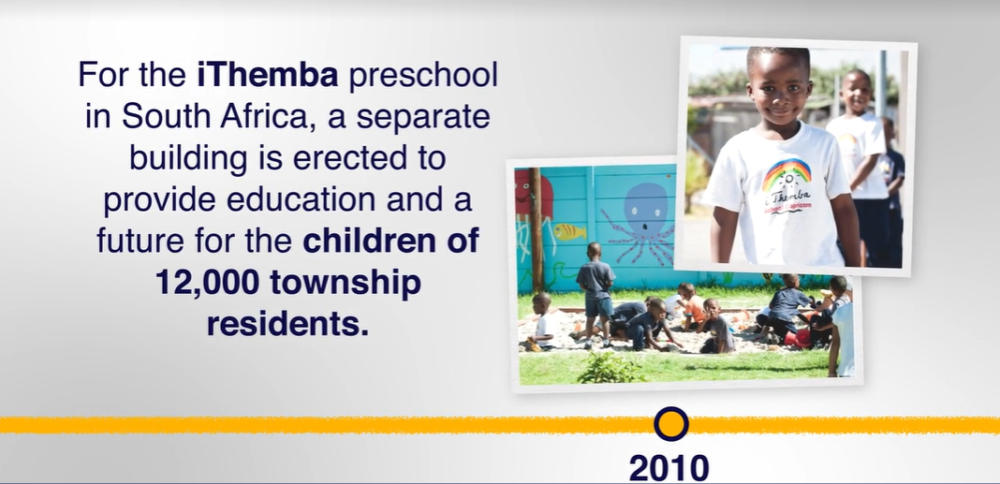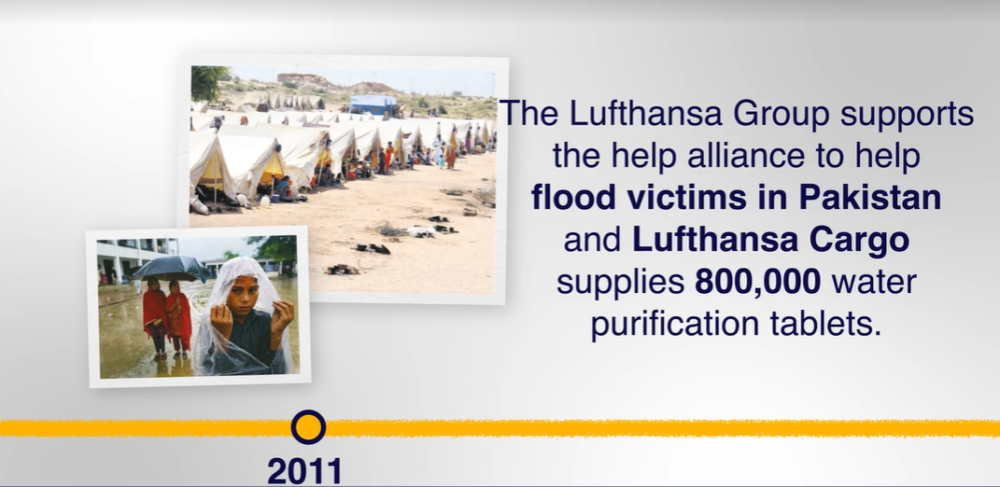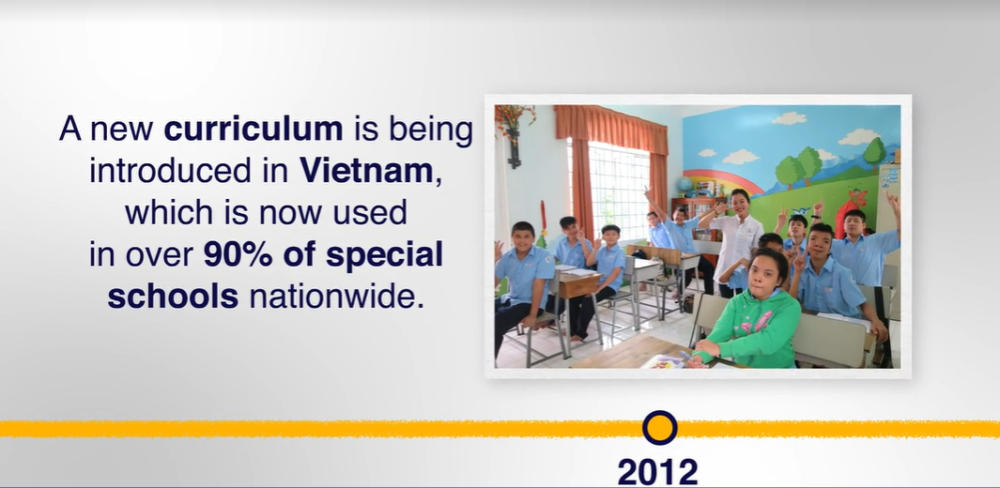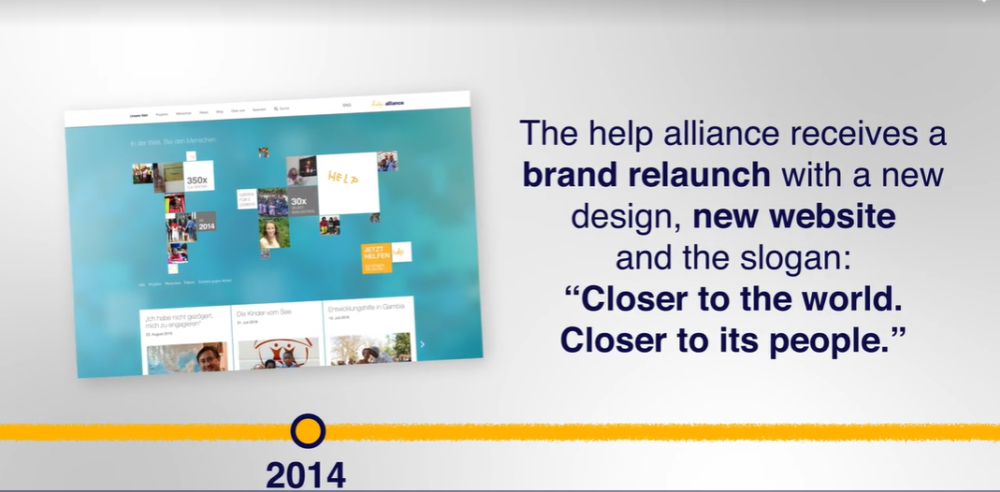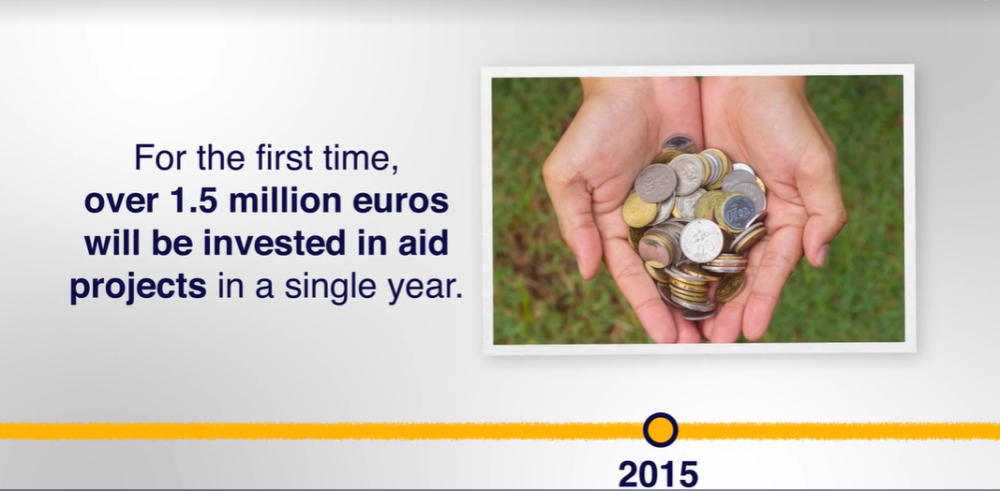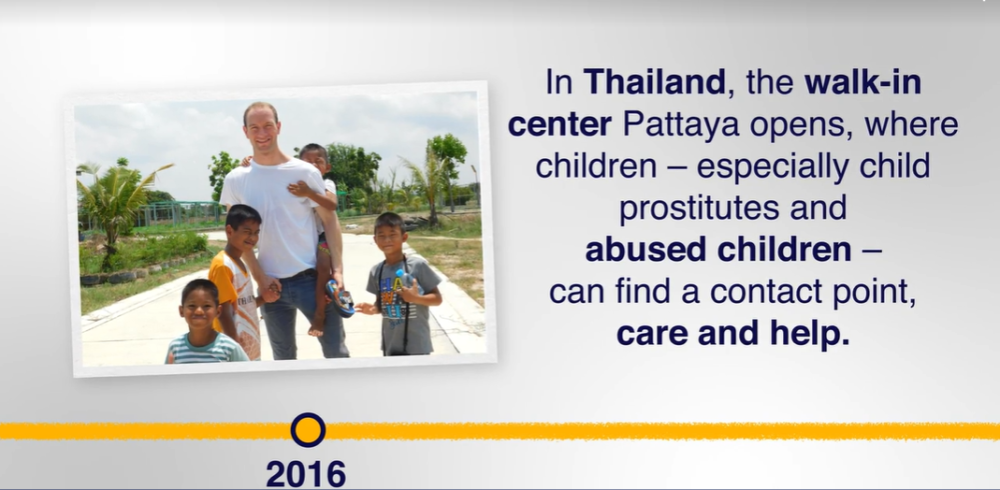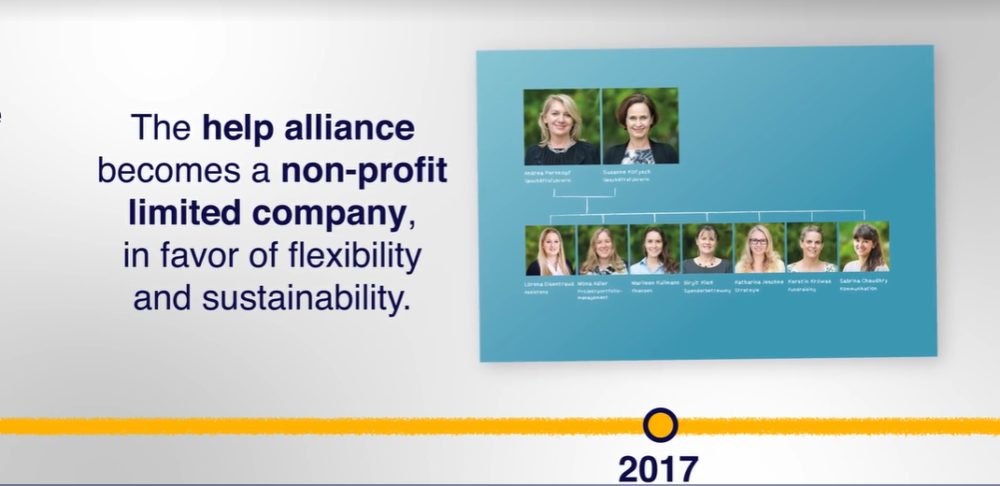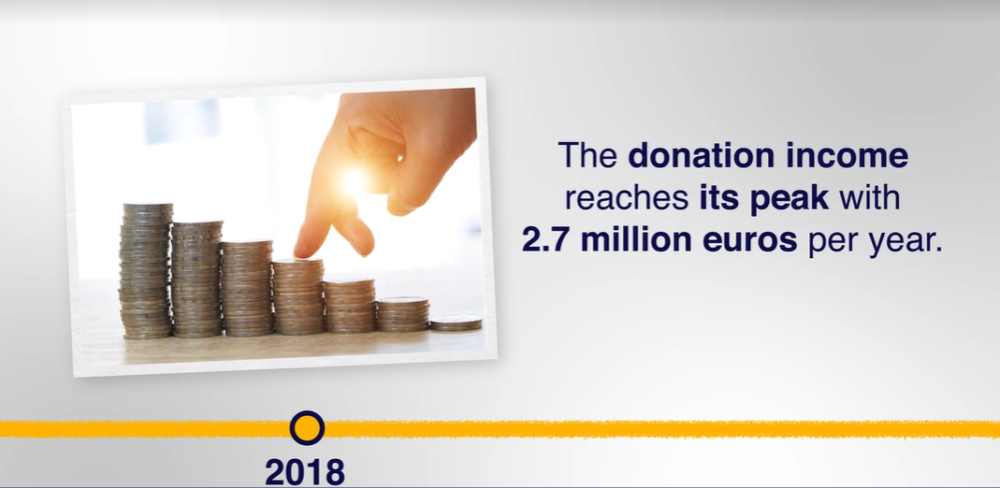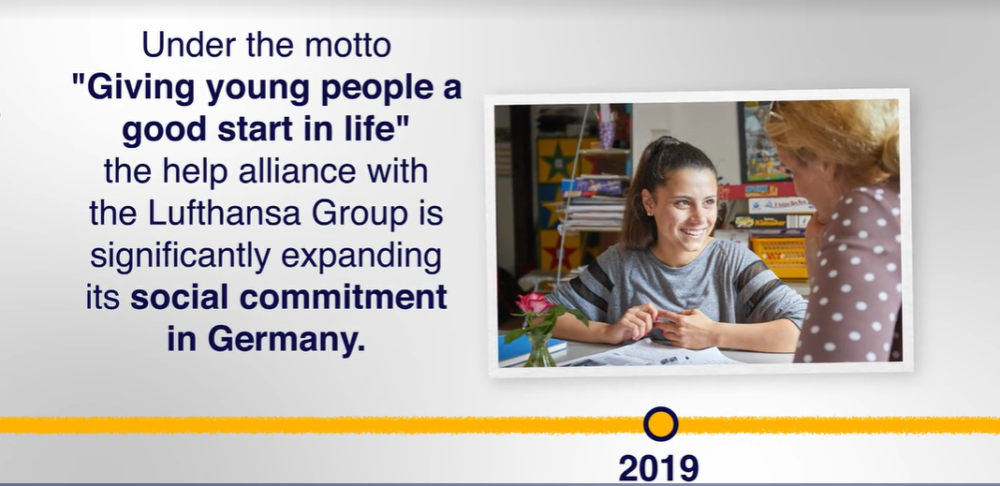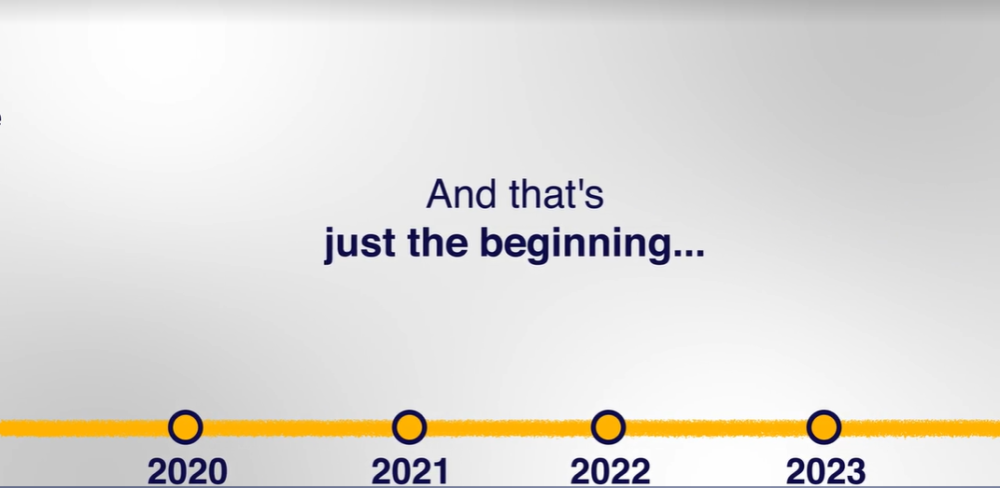History
In 1999, 13 Lufthansa employees founded an organization for all socially engaged Lufthansa Group employees, and a lot has happened since then. help alliance has been a non-profit limited liability company under the umbrella of the Lufthansa Group since 2017, and currently manages about 50 projects worldwide; these projects intend to provide primarily young people access to education and enable them to lead a self-determined life. Let’s take a look back at the past and into the future.
20 really good reasons to support help alliance
The help alliance journey
Because we have already achieved a lot – and will achieve even more with you. In the last few years, help alliance has experienced so many things and helped so many people that it is easy to lose track. Here we present you a short journey through 20 years of great achievements.
From the early days of the aid organization
David Wolseley was one of the founding members of help alliance. From the first days of the aid organization – he carried 35 kilograms of change in his hand luggage.
David Wolseley joined Lufthansa as a flight attendant in 1982 and flew for 33 years. “The opportunities this job offered were and are unique,” says the now 61-year-old. “You can get to know the world and get in touch with local people if you want to.” You experience a lot – sometimes even extremes.
“I quickly understood how much poverty there is in the world, and how much suffering,” says Wolseley. From the crew bus you could see that there were often countless people, including children, who were working on construction sites under terrible conditions, balancing water canisters on their heads or camping on the side of the road. “And from the star hotel where we were accommodated as a crew, you could look outside and see the misery.” He realized how privileged we were.
But there was something else he had experienced as well: How dedicated many of his colleagues were. For example, crew colleagues who took medicine and relief supplies to Ethiopia. “Many things used to be easier. There were not as many hurdles and safety regulations as there are today. Like just having the possibility of taking ointments and liquid medicines for aid projects! Many colleagues helped very actively,” says Wolseley.
A home for those fighting alone
The problem with this was that most of the committed Lufthansa employees were fighting alone and had to privately organize their aid. They founded or supported local aid projects on a small scale, often individually. “In the ‘Lufthanseat’ there were always small and large reports about colleagues and their projects or appeals for donations,” says Wolseley. “That’s why my colleague Bernadett Scholand and I asked ourselves at some point: Why don’t we bring them all together?”
No sooner said than done: In the fall of 1998, they wrote an appeal in the former staff newspaper “Lufthanseat” and suggested a meeting of all colleagues who were interested in supporting this. About 30 followed the call and came together. “That was the unofficial start of help alliance,” Wolseley explains. The colleagues got together, organized themselves – and finally approached Jürgen Weber, then Chairman of the Executive Board of Deutsche Lufthansa AG.
Great support from the Management Board
“It was really a stroke of luck that Jürgen Weber was immediately open to our idea,” Wolseley remembers. In September 1999, help alliance became the association for the commitment of all Lufthansa employees, with twelve projects that were supported during that time.
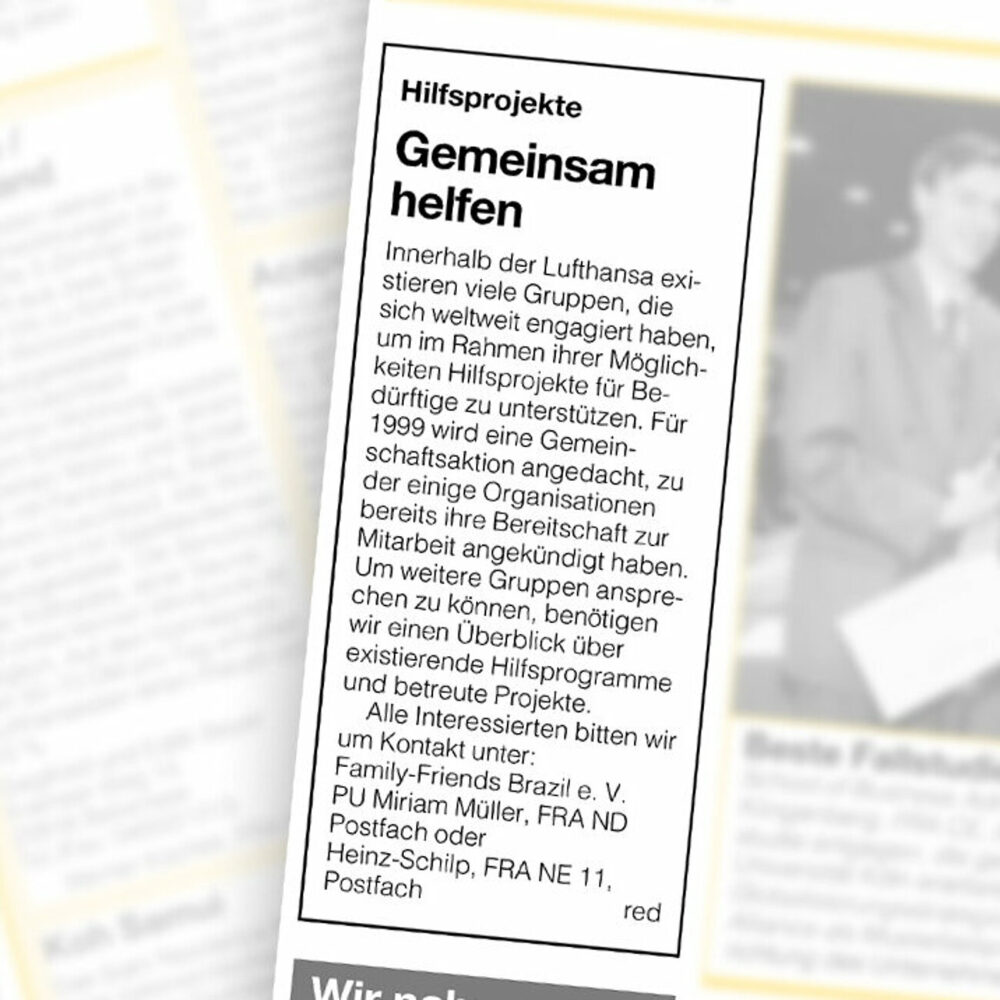
help alliance raised the first funds through the Onboard Collection – Lufthansa provided support to produce the donation bags. “Especially during the euro conversion, we received a lot of money through these collections,” says Wolseley. This enabled the employees to finance their first projects.
“We were all very motivated at the time, but had little experience in association law, accounting, etc.,” says Wolseley. What united the colleagues, however, was the feeling of doing something meaningful, of being able to create something together – and of inspiring others for the help alliance projects. “You can achieve a lot with very little,” he says. “That’s what I learned then.”
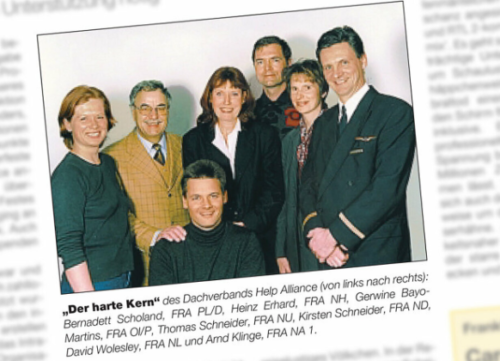
Going through customs with 35 kilograms of change
But there was still work to be done: “After all, we have also set up donation boxes at airports, for example in JFK’s Senator Lounge in New York,” Wolseley recalls. “Once I got a flight there to empty the boxes – I had to go through customs with 35 kilos of change! Afterwards we counted the coins by hand.”
But it was not just money, which was donated to help alliance: Over the years, even passenger blankets or computers, which were discarded found their way into emergency areas or to equip schools in the projects instead of being destroyed.
And the name help alliance, where did it come from? “It came to my mind during one of our sessions.” Lufthansa had just co-founded the global Star Alliance. What could be more appropriate than help alliance?
The aid organization that emerged from the commitment of many Lufthansa employees still bears the same name. In the meantime, however, it has become a charitable limited liability company (gGmbH). It has moved closer to the Group and is now the center for the Group’s entire social commitment. But one thing has remained the same: The passion of the colleagues who are involved in help alliance. Wolseley is still involved sometimes, even if he is no longer actively flying. Above all, however, he now looks after his aid project, a school in Ethiopia with 750 children, arranges sponsors for teachers’ salaries and tries to get German students interested in getting involved as well.
He wishes many more successful years for help alliance – and has had this one dream ever since the aid organization was founded: “The help alliance logo can be seen on Lufthansa Group Airlines’ aircraft – just like on other airlines that support ‘big’ aid organizations such as UNICEF or WWF.

